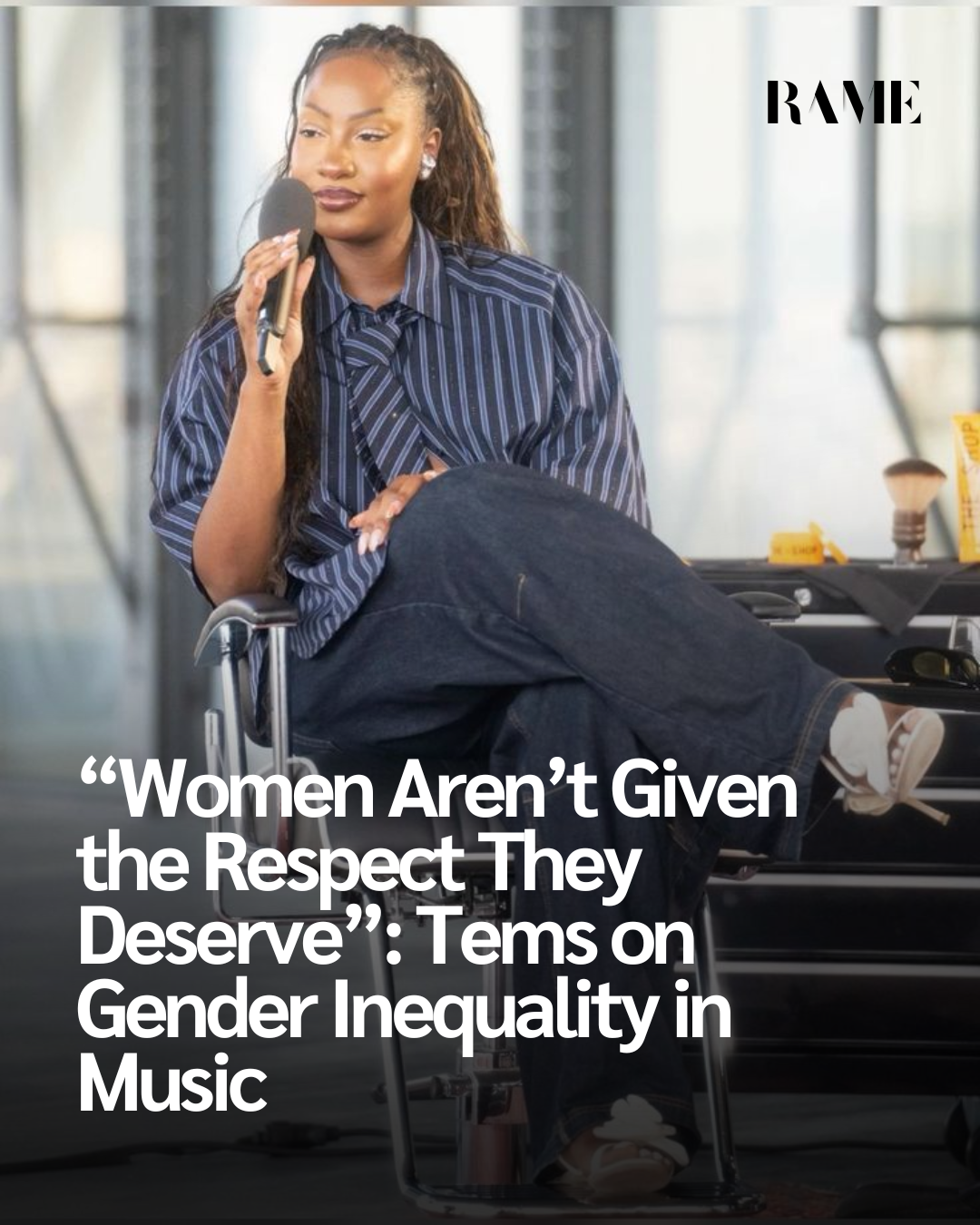Image Credit: Pinterest
Grammy-winning Nigerian singer Tems has ignited fresh debate about sexism in the music industry, calling out the persistent marginalization of women both in Nigeria’s Afrobeats scene and across global genres like hip-hop. Speaking candidly to the BBC, she recounted the steep price women are often expected to pay for visibility, success, and respect.
Breaking Barriers in Afrobeats
Tems, born Temilade Openiyi, made history in 2025 as the first Nigerian artist to win two Grammy Awards, adding a Best African Performance trophy to her 2023 win for her feature on Future’s Wait For U alongside Drake. But despite her rapid rise, she says the journey has been marked by systemic inequality.
“I realised that there’s always a cost. There’s always a price that you pay,” she told the BBC. “And a lot of those prices I wasn’t willing to pay, and there weren’t a lot of options.”
The Afrobeats wave has swept the world over the last decade, but its global face is still overwhelmingly male dominated by Burna Boy, Davido, and Wizkid. Female stars like Tiwa Savage and Yemi Alade have long voiced frustration over structural barriers.
The Leading Vibe: Creating Space for Women
Tems is determined to change the narrative through her initiative, The Leading Vibe, which focuses on empowering young women in music. The program aims to help them access platforms, build audiences, and achieve success without compromising their values.
“I promised myself that if I get to a place where I can do more, I will make this initiative for women like me,” she said. “To maybe make it easier for women to access platforms, access a wider audience, and achieve success.”
Her advice for aspiring female artists is direct: “Know what you wouldn’t do for fame, and what you would.”
A Global Problem: Sexism in Hip-Hop
Tems’ critique echoes broader conversations about misogyny in other genres, especially rap. Male dominance in hip-hop has long sidelined women, with fans and fellow artists often valuing sex appeal over lyrical skill.
Nicki Minaj, for example, has battled years of being defined by her appearance rather than her artistry. Princess Nokia’s 2016 album 1992 was a bold display of intellect and self-assertion, yet she faced online ridicule for her confidence. Cardi B has fought dismissals tied to her past as a stripper and reality TV star, proving her talent with hit records and unapologetic authenticity.
Cupcakke has used sexually explicit music not as gimmick but as a means to confront sexual exploitation and double standards. London rapper Little Simz has brought sharp introspection and storytelling to the scene with albums like Stillness in Wonderland, while Chicago’s Noname blends poetic lyricism with social commentary, as heard on her acclaimed project Telefone.
The Double Standard That Won’t Die
Whether in Lagos or Los Angeles, the rules seem stacked against women in music. Men can boast, brag, and assert dominance without their credibility being questioned; women doing the same are often accused of arrogance or overstepping. Many male rappers openly resist sharing the spotlight with women, limiting opportunities for female talent to thrive.
This resistance isn’t just industry politics it shapes audience perception, streaming numbers, and career longevity. As Tems points out, the problem is structural, not just personal.
Why This Matters
Music isn’t just entertainment; it’s a cultural mirror. When women’s contributions are minimized, the art form and the culture suffers. Tems, and the many other women who refuse to be silenced, are challenging an entrenched imbalance that has persisted for decades.
The question is whether the industry, and its audiences, are ready to listen.



